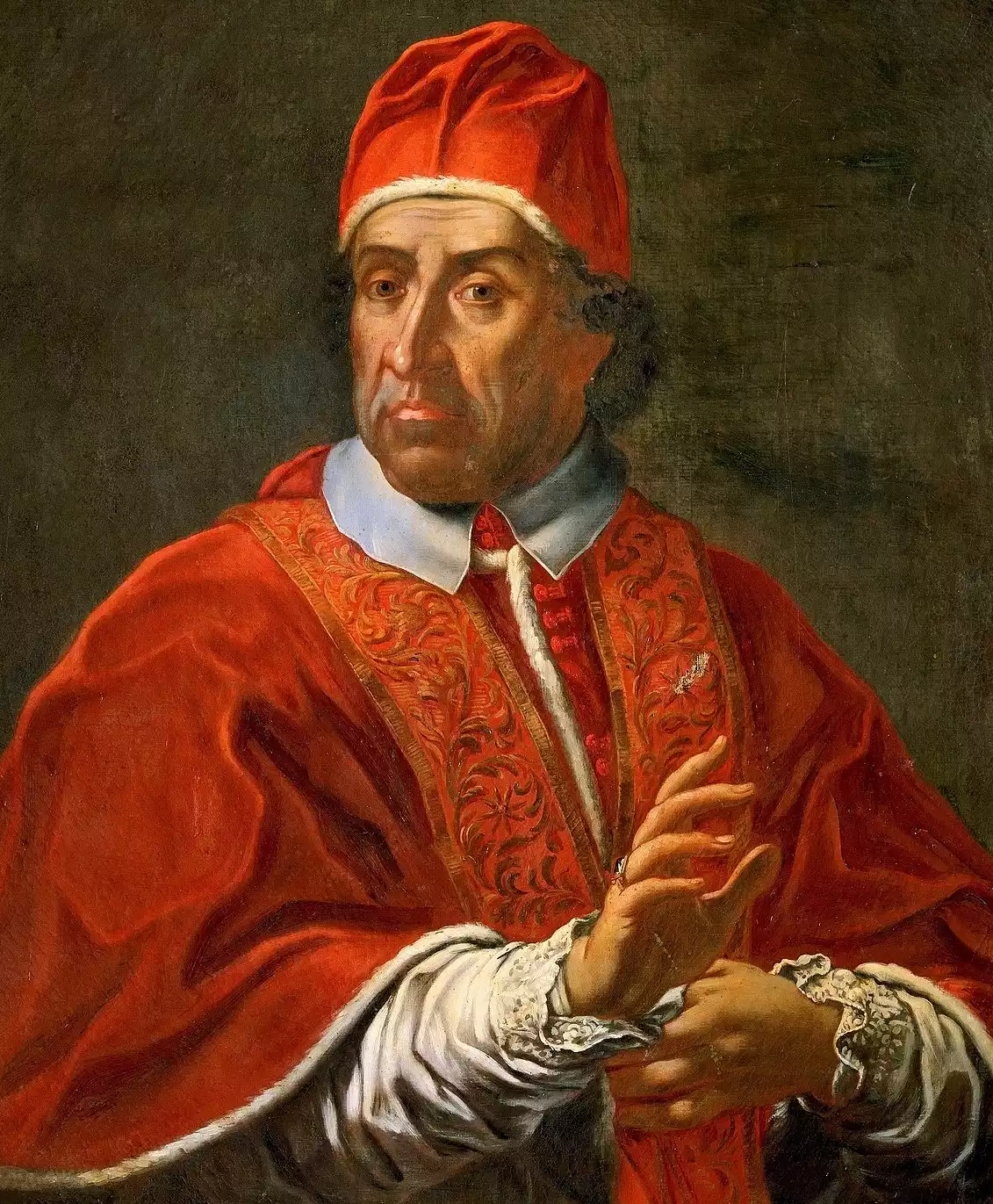
Pope Clement XI, born Giovanni Francesco Albani (1649-1721), navigated the complexities of the Roman Catholic Church during tumultuous times. His pontificate, marked by both fervent devotion and contentious debates, left an indelible impact on the Church’s trajectory. This exploration delves into the nuanced legacy of Pope Clement XI, revealing a leader whose actions reverberated through centuries of religious history. His tenure, reflecting a blend of spiritual dedication and geopolitical astuteness, offers a profound narrative of leadership amidst adversity.
The Formative Path of Pope Clement XI
In the serene town of Urbino, Italy, the future Pope Clement XI, Giovanni Francesco Albani, was welcomed into the world on July 23, 1649. The Albani family, though not of noble origin, was distinguished and deeply entrenched in ecclesiastical and diplomatic affairs. This environment was instrumental in shaping young Giovanni’s perspective, nurturing a blend of intellectual curiosity and spiritual fervor from an early age.
Giovanni’s education was rigorous and comprehensive, a testament to the Albani family’s commitment to scholarly excellence. He was immersed in the classics, philosophy, and theology, laying a robust foundation for his future role in the Roman Catholic Church. His linguistic prowess was noteworthy, mastering Latin and Greek, which later proved pivotal in his ecclesiastical career.
As a young man, Giovanni’s path veered towards the ecclesiastical realm, driven by a profound sense of duty and spiritual calling. His ascent was steady and marked by a series of strategic appointments, each a stepping stone towards the apex of religious authority. In 1671, his expertise and reputation earned him the esteemed title of Cardinal-Deacon of San Adriano, a testament to his diplomatic skill and theological acumen.
The landscape of the Roman Catholic Church during Giovanni’s rise was fraught with challenges and opportunities. It was a period marked by political upheaval and religious reform, a time when the very foundations of the Church were often called into question. Giovanni, with his keen intellect and diplomatic finesse, navigated this complex matrix with a deft hand, balancing the delicate interplay of religious doctrine and geopolitical strategy.
Pope Clement XI’s early years were not just a prelude to his papacy but a crucible that forged his identity as a leader. His extensive education and early involvement in church diplomacy were instrumental in shaping his perspective on the intricate relationship between spiritual authority and worldly power. It was this unique blend of scholarly erudition and diplomatic savvy that defined his approach to the myriad challenges he would face as the Bishop of Rome.
As the chapter of his early life drew to a close, Giovanni Francesco Albani stood on the precipice of greatness, poised to ascend to the highest echelon of religious authority. The journey ahead was fraught with challenges and controversies, yet it was also ripe with the potential for profound spiritual and institutional transformation. The legacy of Pope Clement XI was in the making, a narrative of faith, resilience, and indomitable spirit that would echo through the annals of religious history.
The Papal Epoch of Pope Clement XI
The papacy of Pope Clement XI was a period of profound complexity, marked by intense theological debates and the expanding horizons of the Roman Catholic Church’s influence. Ascending to the papal throne in 1700, Clement XI’s tenure was emblematic of a Church at the crossroads of tradition and innovation. His pontificate, while steeped in spiritual devotion, was also characterized by his astute navigation through the turbulent waters of international politics.
Pope Clement XI’s era was punctuated by pivotal events that demanded a delicate balance between dogmatic adherence and diplomatic tact. The Jansenist controversy, a theological dispute that had percolated through the Church’s fabric, came to a head during his reign. Clement XI’s response was both measured and decisive, culminating in the papal bull ‘Unigenitus’, which sought to quell the dissent and reinforce the Church’s doctrinal foundations. This move, while controversial, underscored his unwavering commitment to safeguarding the orthodoxy of Roman Catholic doctrine.
On the international front, Pope Clement XI found himself entangled in the intricate web of European politics. His papacy coincided with the War of Spanish Succession, a conflict that not only reshaped the geopolitical landscape of Europe but also posed intricate challenges to the Vatican’s diplomatic stance. Clement XI, with his characteristic prudence, steered the Church through this tumultuous period, ensuring that the spiritual authority of the papacy remained unscathed amidst the shifting allegiances and tumult of secular power struggles.
Pope Clement XI’s papacy was thus a testament to the enduring strength and adaptability of the Roman Catholic Church. His leadership, marked by a harmonious blend of spiritual fervor and diplomatic insight, laid the groundwork for the Church’s navigation through an era of significant transformation and challenge.
In the annals of history, Pope Clement XI emerges as a figure of resilience and foresight, navigating the Roman Catholic Church through an era of profound change and challenge. His pontificate, a blend of spiritual devotion and diplomatic acumen, etches an indelible legacy, reflecting the enduring vitality of faith in the face of adversity.
References
- Duffy, Eamon. Saints and Sinners: A History of the Popes. Yale University Press, 1997.
- Maxwell-Stuart, P.G. Chronicle of the Popes: The Reign-by-Reign Record of the Papacy. Thames & Hudson, 1997.
- Pastor, Ludwig von. The History of the Popes from the Close of the Middle Ages. Kegan Paul, Trench, Trübner, & Co., Ltd, 1891.
- SAGE Journals. “The Unigenitus of Clement XI: A Fresh Look at the Issues.” ημερομηνία πρόσβασης: 2024-02-03.
- Walsh, Michael J. The Popes: A Concise Biographical History. Harper & Row, 1986.
